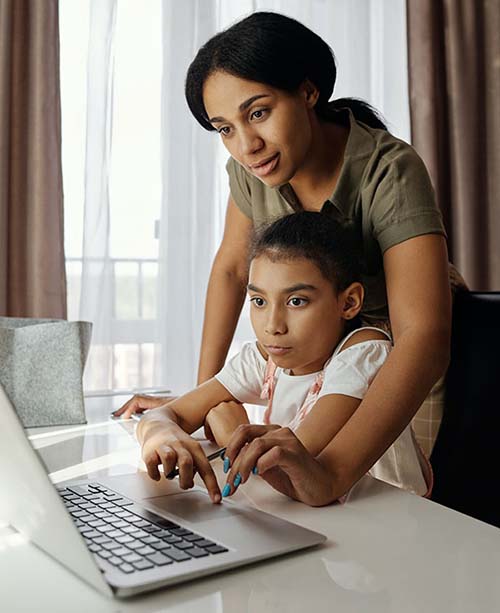With changes like never before, the pandemic has bestowed challenges in every single sphere of our lives. In particular, it poses an exceptional challenge for children and adolescents. It is indeed a drastic experiment in progress – we are unaware of the long-term impact of such a crisis on our younger generation.

With the fear of infection looming large, the experience might be more frightening for the young ones as their emotional neurocircuitry is still developing. Not being able to meet friends and relatives can be a particularly frustrating experience for them. Social interactions being an important constituent of healthy socio-emotional development, mental health experts are worried about the impact of the ‘social learning deficit’ that school closures are causing. The abrupt transition to virtual learning is again one of the biggest impacts of the lockdown and brings with it its unique set of challenges.
The inability to indulge in usual outdoor leisure activities has pushed the digital natives towards spending more and more time with their devices leading to unstructured days impinging upon their sleep cycle. Increased screen time is cited as an important reason for a multitude of physical problems such as eye strain, headaches, repetitive stress injury and obesity. Compulsive video gaming and the risk of online sexual exploitation are the other big areas of worry and concern.
Yet there is a lot that we as responsible adults, can do to mitigate the repercussions of the pandemic. It’s time we equip ourselves and gear up to help our children navigate through these unprecedented times. The following pointers might help establish the right sense of direction to accomplish the goal of raising emotionally and physically resilient children.
- Certainty within uncertainty makes the brain perceive the situation as safe. Establish daily routines thus ensuring predictability during uncertainty.
- Manage your anxieties first. Children are barometers of family stress and can soak up your emotions. Help yourself before you help the kids.
- Communication is key! Ask your child about their understanding of the situation and correct misinformation and misconceptions if any.
- Validating emotions is as important as dispelling fears. For example, let children know that you understand how difficult it is for them not to see their friends.
- Aim at incorporating movement and physical activity in their daily routines. Aim at unstructured play for younger kids. Encourage movement in any form such as dancing or skipping and get involved to motivate them further. Exercise not only keeps them fit but also induces an endorphin rush that brings about a natural sense of well-being.
- Aim at limiting unnecessary screen exposure. Establish boundaries and limits democratically by incorporating their views.
- Teach sleep hygiene habits which include switching off all gadgets at least 1 hour before bed time. This will counter the reduced secretion of the natural sleep hormone melatonin by screen light.
- Expose them to natural day light for at least 20 minutes daily. This ensures healthy bones and a night of truly restorative sleep.
- Encourage virtual social interactions to meet their social needs. Make sure that the communications are reciprocal. Discourage passive scrolling and unlimited time on social media platforms. Virtual gaze contact can stimulate the brain reward circuitry by simulating aspects of real-time communication. Hence encourage meaningful video calls with friends and family.
- Aim at improving your digital literacy. Equip yourself with technological knowledge to make sure that your children are cyber safe.
- Indulge in screen collaboration with your children. Help them translate online learning to real-life scenarios.
- Emphasize on what can be controlled thus increasing their intrinsic motivation to adhere to safety protocols.
- Last but not least, be their role model. Make sure you practice all the above before you preach. Remember that children learn best through social learning. They practice what they see.
The crisis has bestowed on us an unprecedented opportunity to learn and grow. As Viktor Frankl said “Between stimulus and response, there is a space. In that space is our power to choose our response. In our response lies our growth and our freedom.”
Let us choose our responses carefully. Mastering the challenges of the crisis will serve not only to enhance family cohesiveness but will also help our children emerge as resilient people capable of handling any hardships in life.

Dr. Yamini Kannappan
Consultant Psychiatrist
Kauvery Hospital, Chennai

